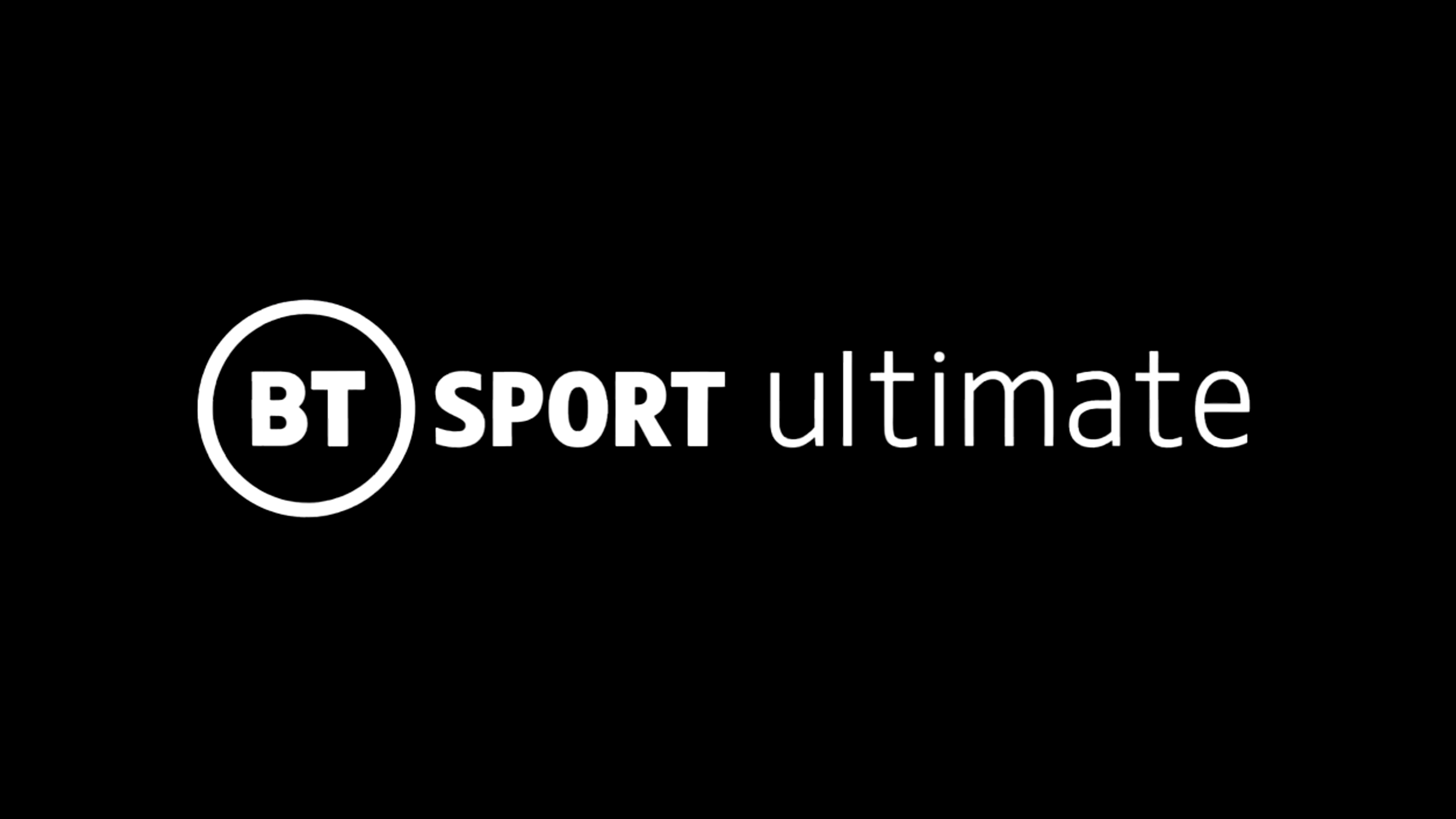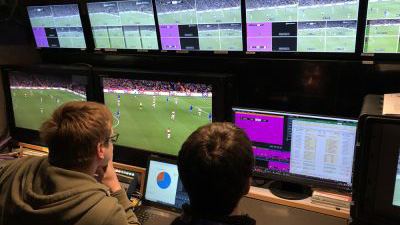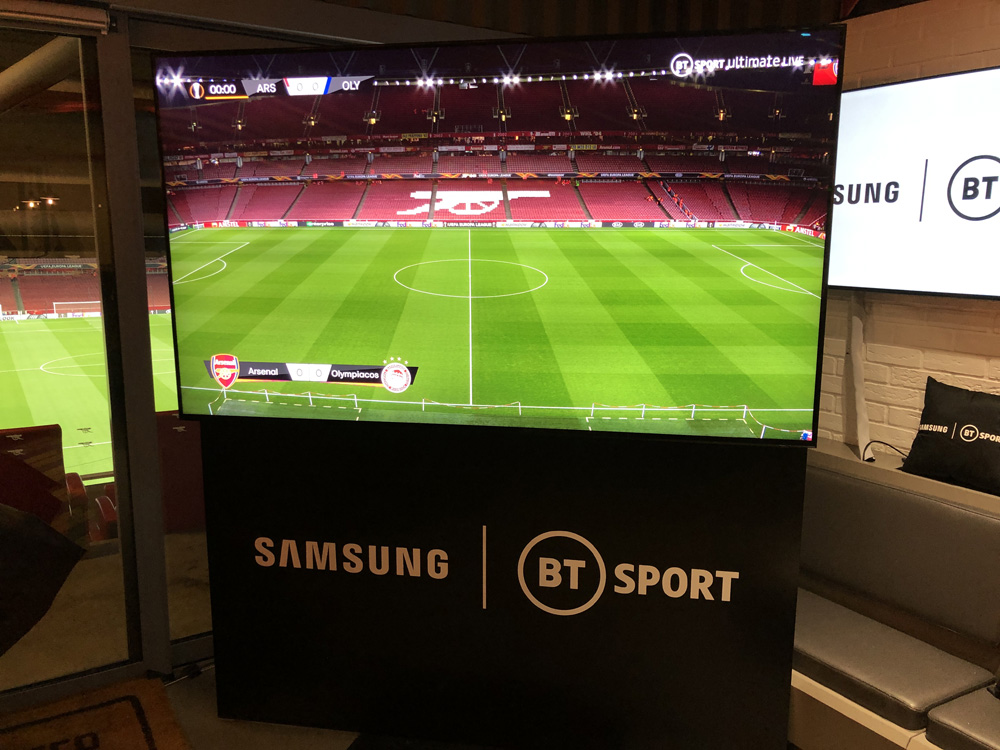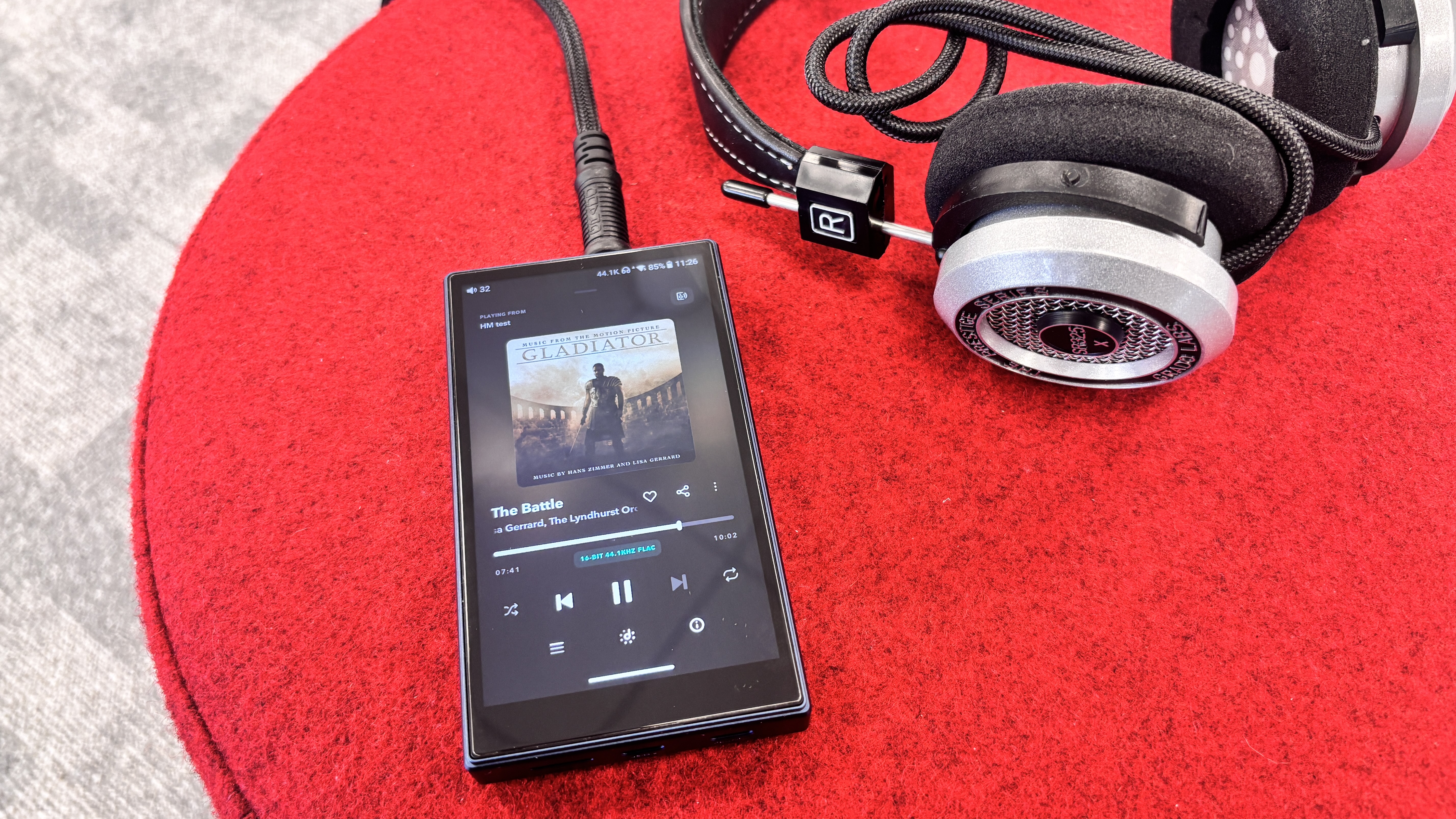BT Sport Ultimate and 8K: everything you need to know
BT already broadcasts sport in 4K, HDR and Dolby Atmos, but 8K coverage could arrive sooner than you might think

The latest hi-fi, home cinema and tech news, reviews, buying advice and deals, direct to your inbox.
You are now subscribed
Your newsletter sign-up was successful
BT Sport is behind some of the most technologically advanced live sport broadcasts in the UK.
In August it launched a BT Sport Ultimate channel for hosting 4K, HDR and Dolby Atmos broadcasts of live football and other sports. And while it's merely months old, here we are already talking about an 8K service – not because the British broadcaster has announced one per se, but because it has recently suggested one could be with us in time for the next Premier League season (whenever that now may be!)
BT Sport has been collaboratively trialling 8K in Europe since late last year and could well be first to deliver regular 8K sport coverage on this side of the pond. So what have those trials achieved? Have they been any good? Would a service be welcome in this early 8K era and just how much will we have to pay for it? Read on for the answers to those questions and more...
But first, what is BT Sport Ultimate?
Just before the start of the Premier League 2019/2020 season, BT decided to rebrand its existing, 2015-launched 4K UHD channel as BT Sport Ultimate. It's where you can watch live sport* in 4K Ultra HD resolution at 50 frames per second and in Dolby Atmos sound.
BT Sport Ultimate (channel 433 on BT Sport, channel 531 on Virgin Media) is available on everything from smart 4K TVs and media streamers to games consoles and smartphones, however which picture and audio technologies are available to you depends on your device.
You'll get 4K broadcasts on 4K TVs, Xbox One S and X consoles, Google's Chromecast Ultra streamer and the Apple TV 4K. Samsung 4K smart TVs (2018 models onwards), the Google Chromecast Ultra and Xbox One S and X also support HDR (High Dynamic Range).
If you have a HDR-compatible phone or tablet, such as a OnePlus 7 Pro, Samsung Galaxy S8-S20 or iPhone 8-11, you'll also be able to watch BT Sport Ultimate broadcasts in HD HDR via the BT Sport iOS and Android apps – both on the standard video player and, thanks to a recent update, the enhanced video player (which features an existing interactive timeline, multiple-angle replays, in-game stats and VR360 features).
The latest hi-fi, home cinema and tech news, reviews, buying advice and deals, direct to your inbox.
As well as a compatible device to watch the broadcasts on, you need to be a BT Sport Max 4K TV package customer to get the new channel. Alternatively, you can watch it on a month-by-month basis without committing to a longer-term contract with a £25 monthly pass.
Recommended internet speeds are 25Mbps for 4K broadcasts and 30Mbps for those in 4K HDR. For HDR playback on mobiles and tablets, you'll need a minimum connection speed of 2.5Mbps, although BT recommends at least 6Mbps "for the best possible viewing experience".
*Sports broadcast on the BT Sport Ultimate channel include Premier League, Champions League and Europa League football matches, Gallagher Premiership and Champions Cup rugby, UFC and WWE.

8K trials
In September 2019, BT showcased an hour-long 8K broadcast of a Gallagher Premiership Rugby 7s match taking place in Northampton. The feat was achieved with the help of several media partners, including Appear TV (decoding and encoding), AstroDesign (8K Interface Conversion), Blackmagic Design (8K vision mixing), Fujinon and Ikegami (camera equipment), Leader (technical monitoring), MOOV (graphics) and Telegenic (OB support).
The chosen 8K display was Samsung's flagship Q950R 8K QLED TV – not a huge surprise considering the Korean brand was the first TV manufacturer to support the BT Sport app. It was also the TV of choice for BT Sport’s latest 8K broadcast trial, which marked the UK’s first 8K broadcast...
The collaborative effort between BT Sport and Samsung saw the UEFA Europa League match between Arsenal and Olympiacos broadcast live in 8K and HDR10+ from the the Emirates Stadium, with a bespoke BT Sport 8K broadcast truck just outside the stadium delivering the picture to a 82in Samsung Q950R QLED 8K TV (2019) within one of the hospitality suites.
What does it look like?
At the UEFA Europa League match, we noted that the picture was excellent on the whole, delivering plenty in the way of definition and punch. Motion was impressively smooth and stable – quite some achievement when showing a fast-moving football match. Colours, from the green of the immaculate pitch to Arsenal's red and white kit, came across with excellent clarity and richness.
Yet we couldn't shake the feeling that the overall picture was about as sharp as a class-leading 4K TV in a smaller size, say 55 inches. We think it's to do with pixel density. On a massive 82-inch display, all those extra pixels only make for a slightly higher pixel density (107 ppi) than on a 55-inch 4K TV (80 ppi). Obviously as those 8K screen sizes come down, the pixel density will only increase.
Samsung has 8K TVs from 55in (the 82in is its third-biggest screen), while LG and Sony will have 65in and 75in 8K sets respectively this year – so we would be keen to eye it up on one of those.

Will trials transition into a service?
The company has said it intends to broadcast live English football matches in 8K as early as next season – and we're not just talking one-offs.
The superior resolution broadcasts will supposedly be part of BT's Ultimate package (although who knows if a premium cost would be necessary to unlock 8K) and the transmission will be able to adjust the picture resolution according to your TV and internet bandwidth.
What are the potential issues?
Which leads us to the biggest problem: bandwidth. We were told that an internet speed of about 70 Mbps would be necessary to watch the 8K HDR pictures in all their glory – about three times what’s suggested for 4K streaming, then. That's well beyond what many households currently enjoy, and higher even than the average speed (50Mbps) of BT's Superfast fibre.
That said, BT has plans to launch a Full Fibre "gigabit home broadband service" to "hundreds of cities, towns, and villages across the UK” later this month that would be “25 times faster” than the current Superfast fibre. So, err, 1250Mbps?
Not only would that be ideal for super busy homes and super fast 4K downloads, it would also, BT says, “provide a future proof connection to enable homes to make the most of new high-bandwidth products and services such as 8K video, online gaming and the increasingly connected smart home”.
Virgin TV and broadband customers who subscribe to BT Sport Ultimate will therefore need its M100 fibre broadband at a minimum.
The bottom line: while streaming live sport in 8K should be doable, it’ll be very expensive to begin with.
What TVs will I be able to watch it on?
According to a Samsung spokesman speaking at the UEFA Europa League match trial, any of the company's 8K TVs from 2018 onwards would be able to show the BT Sport 8K broadcasts – the Samsung Q900R (2018) and Q950R (2019) models, as well as the company's forthcoming Q950TS and Q800T 2020 8K TVs. That's because BT uses HEVC compression, supported by those sets.
More TV manufacturers would no doubt naturally follow suit, but considering Samsung and BT Sport's partnership for the 8K trials, it's likely Samsung's 8K models will be the first to support the special 8K-supporting BT streaming app.
MORE:
Sky launches a more affordable 4K-capable Sky Q box

Becky is a hi-fi, AV and technology journalist, formerly the Managing Editor at What Hi-Fi? and Editor of Australian Hi-Fi and Audio Esoterica magazines. With over twelve years of journalism experience in the hi-fi industry, she has reviewed all manner of audio gear, from budget amplifiers to high-end speakers, and particularly specialises in headphones and head-fi devices.
In her spare time, Becky can often be found running, watching Liverpool FC and horror movies, and hunting for gluten-free cake.
